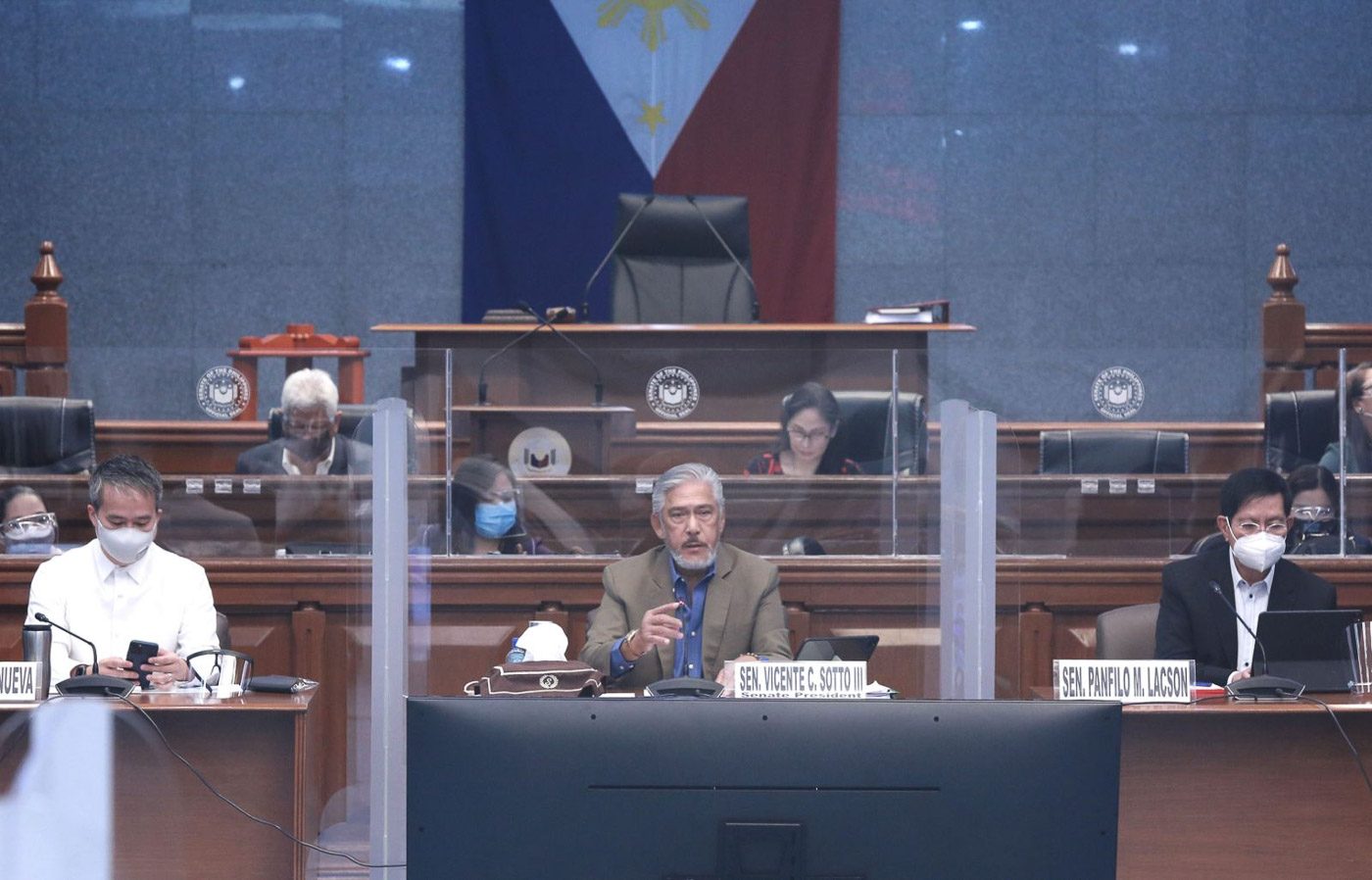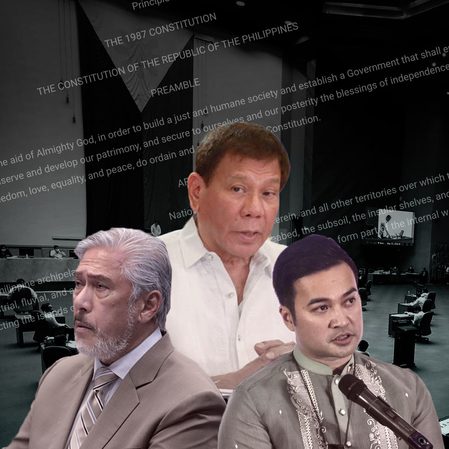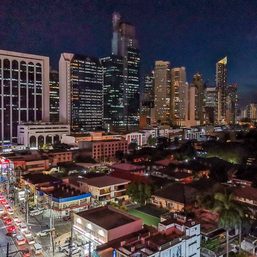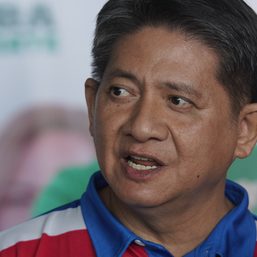SUMMARY
This is AI generated summarization, which may have errors. For context, always refer to the full article.

Senators remain cold towards the resolution amending the Constitution’s economic provisions, even as the House of Representatives is rushing to pass it before Congress’ sine die adjournment on June 4.
Senate President Vicente Sotto III told Rappler on Thursday, May 27, that the upper chamber does not have enough time to tackle Resolution of Both Houses (RBH) No. 2 by next week.
The Senate is still focused on passing other priority bills, and economic charter change (Cha-Cha) is not one of them.
“I don’t think we have enough time as it is to take a quick look into the proposal. Anyway, the bills certified by the Palace as urgent have passed or are in advance stages in the Senate. We have five days to go before the sine die adjournment,” Sotto said.
This was echoed by Senate Minority Leader Franklin Drilon. He reiterated senators’ long-held position that if the goal of RBH 2 is to open up the economy to more foreign investors, then this can be done by passing regular bills without Cha-Cha.
“My reading is that the senators are not inclined to support amendments to the Constitution at this time. It was not even in the agenda of the LEDAC (Legislative Executive Development Advisory Council) meeting yesterday, which means it is not a priority legislation,” Drilon said in a text message.
The Senate’s priorities right now include bills that would allow full foreign ownership of public services and fewer restrictions on foreign investments, which have been certified as urgent by President Rodrigo Duterte.
On May 19, senators approved the measure lowering the required paid-up capital for foreign investors.
RBH 2 – which already hurdled its second approval in the House – proposes to add the phrase “unless otherwise provided by law” to constitutional provisions saying only Filipino citizens can control, own, and/or lease alienable lands of public domain, natural resources, public utilities, educational institutions, mass media companies, and advertising companies in the Philippines.
This means lawmakers would be able to use legislation to lift the current prohibitions on foreign investors – something the Constitution is not allowing Congress to do at the moment.
House Speaker Lord Allan Velasco had argued that opening up the Philippine economy to more foreign management and control would help the country recover from the coronavirus pandemic.
But this is just the latest twist in efforts to change the 34-year-old charter during Duterte’s presidency.
‘Last resort’
For Senator Grace Poe, economic Cha-Cha “probably deserves less attention” now that the President has certified other foreign investment bills as urgent.
“I am personally wary of a piecemeal revision of the Constitution. It is a living document which holds the aspirations of the people. It should only be revised under the strictest of scrutiny for the right reasons,” said Poe in a text message shared to reporters.
“You don’t just change it on a whim especially now that everyone is fearful of a creeping invasion in our shores. Tinkering with the Constitution should always be our last resort,” she added.
Senator Panfilo Lacson also believes only the Supreme Court can resolve whether the House and the Senate should vote jointly or separately on RBH 2.
“The senators assert that only the Supreme Court can interpret the provision to amend or revise the charter. The problem is the absence of the cause of action that would trigger the Court to act and resolve the matter,” Lacson told reporters.
The Constitution is silent on whether the House and the Senate should be voting jointly or separately in making amendments or revisions – a contentious issue that led to a stalemate in past Cha-Cha attempts. – Rappler.com
Add a comment
How does this make you feel?

![[In This Economy] Here’s a new paper by UP economists on economic charter change](https://www.rappler.com/tachyon/2024/04/TL-foreign-direct-investments-apr-12-2024.jpg?resize=257%2C257&crop=299px%2C0px%2C720px%2C720px)
![[EDITORIAL] Kapag bumabagsak ang ratings, balikan ang basics](https://www.rappler.com/tachyon/2024/04/animated-bongbong-marcos-sara-duterte-popularity-numbers-2024-carousel.jpg?resize=257%2C257&crop_strategy=attention)


![[In This Economy] Economic charter change is very unpopular – it’s time lawmakers listened](https://www.rappler.com/tachyon/2024/04/in-this-economy-charterchange.jpg?resize=257%2C257&crop=292px%2C0px%2C720px%2C720px)
There are no comments yet. Add your comment to start the conversation.